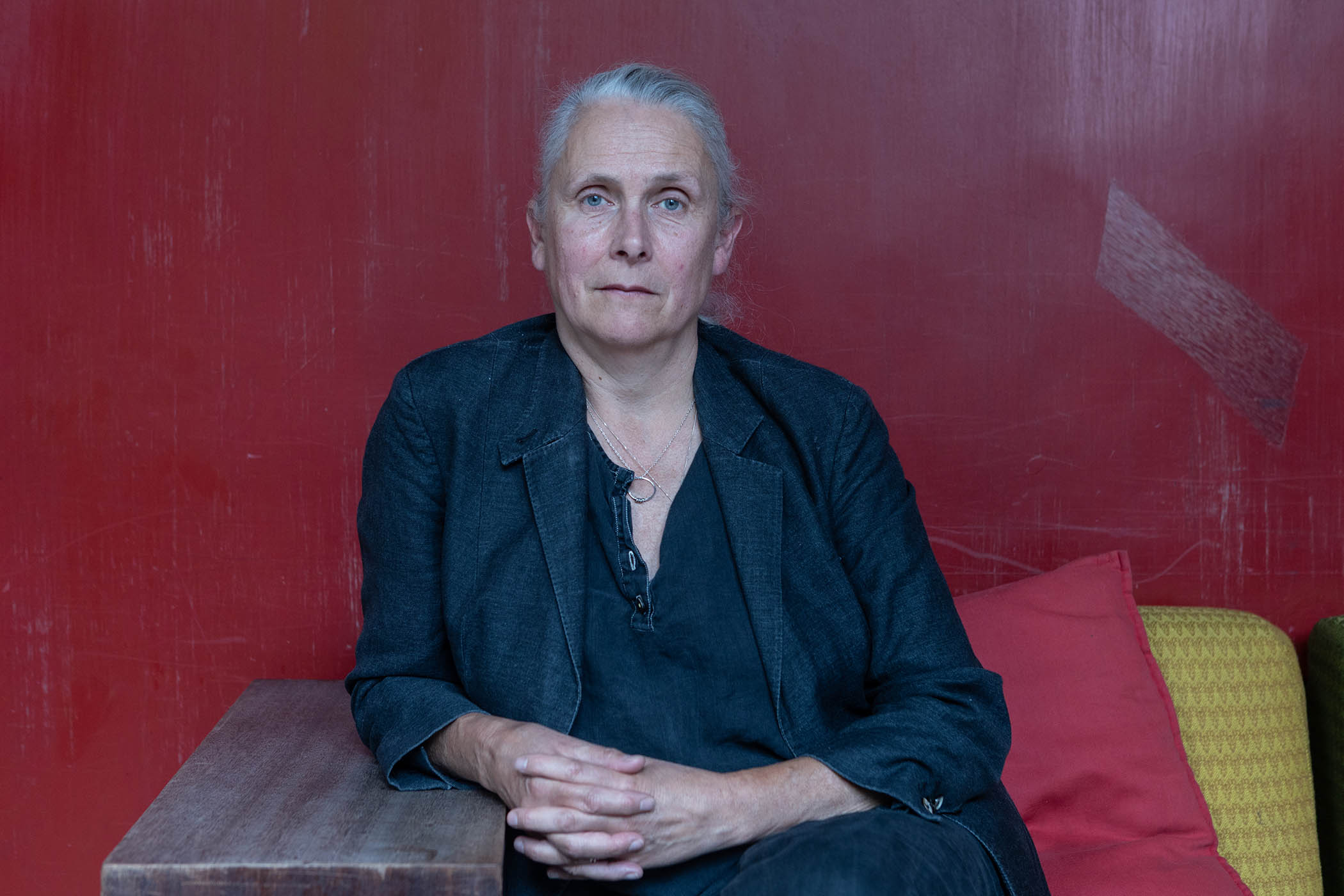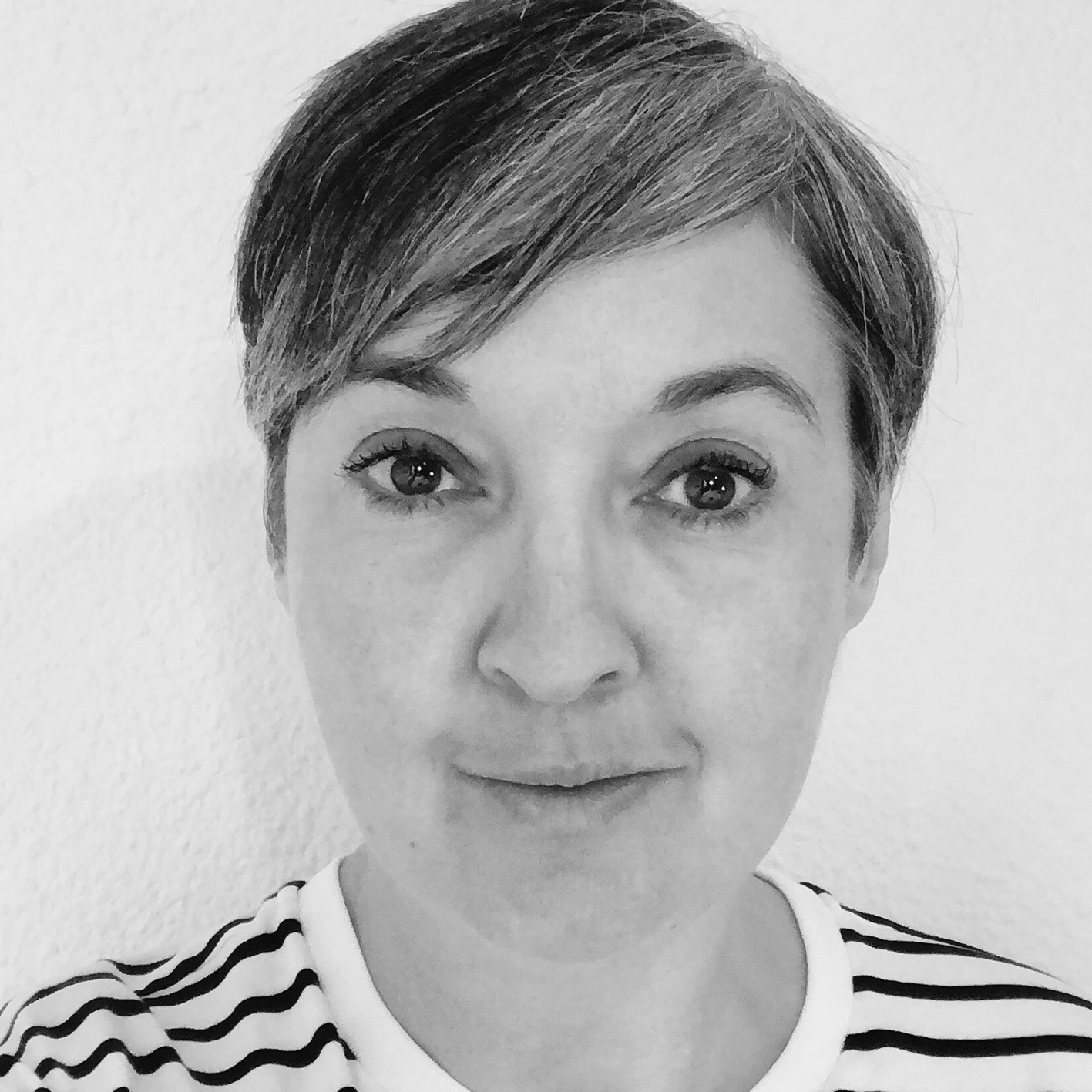Known for her radical feminist productions and pioneering adaptations for children, the theatre, opera and film director Katie Mitchell, 60, spent her childhood in Berkshire and rural Mid-Wales. Her stage productions, often combining live cinema and naturalistic acting, include Theodora, Bluets and Anatomy of a Suicide. Mitchell is professor of theatre directing at Royal Holloway and has published resources for schools in collaboration with the National Theatre. Cow/Deer, her new collaboration with play wright Nina Segal and sound designer and composer Melanie Wilson, has just opened at the Royal Court, and is reviewed by Vanessa Thorpe here.
Cow/Deer tells the story of the lives of two animals, without words, through a small group of performers and sound artists. Why make a play focusing on the ‘more than human world’?
Melanie Wilson and I have worked together for more than a decade, and we’re both very interested in ecofeminism, so we thought it would be fantastic to make a piece of work that centres on animals, not human beings. I’m very interested in where human beings sit as one of many species within a much larger ecosystem, and how we forget to notice, respect and listen to the other species.
How does your collaboration with Nina, as writer, and Melanie work?
I try to avoid hierarchical or patriarchal systems of work as much as possible, because they have oppression built into their DNA. You could describe it as a feminist collective project. We do our normal roles, but outside the normal hierarchy of practice, which would go writer, director, sound designer and composer, top-down. All the decisions are made jointly, which is a really complex, subtle and gorgeous procedure.
Do you have a personal connection with countryside animals?
As a child, my parents were involved in the self-sufficiency movement in the Brecon Beacons. We lived in a tiny village with no running water, growing our own vegetables and interacting with the local farmers. Recently, my partner and I purchased a very small stone cottage just outside Brecon, opposite a cow farm, so I’ve been privileged to know farmers who’ve worked with cows all my life, and two of them are advisors on this project. Also, because of land use in the UK, wild animals like deer are actually interacting with agricultural animals now.
The play is a collaboration between the Royal Court and the National Theatre of Greece. As someone who has worked more in mainland Europe than in the UK, what does this collaboration mean for the funding and valuing of theatre today?
Unfortunately, we all know that things went horribly wrong with Brexit. Collaborations like this one are a fantastic model, and very existentially important because they celebrate connection. We’re all struggling with big economic issues around the funding of the arts across Europe, so it’s important to have these conversations with our European colleagues.
What drives you to make theatre resources for children?
Motherhood opened a door for me to the reality of what’s going on in primary schools and then in secondary schools regarding drama. It’s been pretty devastating to bear witness to the catastrophic cutbacks and the collapse in the uptake of drama at GCSE and A-Level. It made me want to get involved at the grassroots level, and we all know how useful drama can be to help in all types of learning across lots of different subjects.
How did drama help you?
As a young teenager I struggled with mental health issues, and drama provided me with a safe environment to process and express things. I’ve seen this with my daughter and her friends at secondary school too – how important culture and drama are in helping people steady themselves and express their feelings in a constructive way.
Where do you think women stand in the theatre world in terms of representation and agency?
We have two really good examples now in Indhu [Rubasingham] at the National Theatre and Nadia [Fall] at the Young Vic. These are very significant appointments in terms of the future of theatre-making, but we are still dealing with irritating issues like the gender pay gap, which is still about 11%. There’s also a lot of heavy lifting to be done around getting 50-50 representation of female and male practitioners. And when I say female, I’m not just thinking about people who are biologically female. We have a huge non-binary and trans community in theatre who are very important in that conversation.
You made a short film in 2017, Unseen, with Warp Films, who’ve recently had success with Adolescence. How did that help you?
It was my first real experience as a film-maker, so to have the support of Warp was incredible. Adolescence is an exceptional piece of work too – as well as the content, the form of it is really exciting. And, of course, the next natural step for me would be to make a [feature] film, which is something I am working on, maybe in Wales...
Who inspires you in British theatre today?
I’m really excited by young people who aren’t necessarily right at the centre of the culture, like Bullyache, a young company which made a great show called A Good Man Is Hard to Find, which they did at the Venice biennale. I also love a young practitioner called Sweatmother, and the composer Bushra El-Turk, who’s written a fantastic theatre piece called Oum, directed by Kenza Koutchoukali.
You’ve spoken before about the joy of not being precious around canonical plays. What did you think of the Royal Shakespeare Company’s Hamlet/Hail To The Thief?
I wasn’t in the country to see it, but a production involving one of my favourite bands, with a very strong female artist, Christine Jones, at the centre of it – how brilliant! It’s an old patriarchal object, Hamlet, and we should encourage high-end conceptual work where Shakespeare can be reimagined with a fantastic pop group, but also space for new plays to be done very loyally in terms of fulfilling a new writer’s intentions. That mix would make for a healthy, robust theatre culture.
Cow/Deer is at the Royal Court until 11 October
Newsletters
Choose the newsletters you want to receive
View more
For information about how The Observer protects your data, read our Privacy Policy
Photograph by Andy Hall for The Observer

